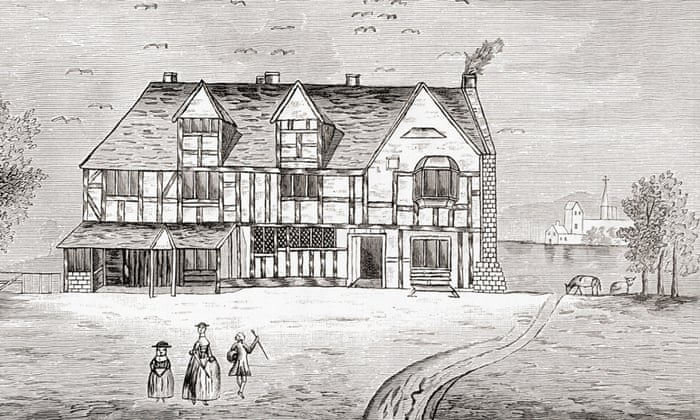Shady dealings of William Shakespeare’s father ‘helped to fund son’s plays’
Research into family finances gives fresh insight into the playwright’s early life story
The story of how William Shakespeare’s father slipped from wealth to bankruptcy, leaving his impoverished son to struggle to establish himself as a poet and actor before making his own wealth in the London theatre, has long been an established part of the mythology surrounding the playwright. But a new study of the family’s business in the wool trade suggests this is far from an accurate account.
David Fallow, a former financier, has spent years studying the Shakespeare family’s wealth, poring over documentary evidence from a time when “wool was to the English economy what oil is to Saudi Arabia today”.
It has long been assumed that Shakespeare’s father was a small-town glover and dealer in hides and wool, who went from riches to rags. The new research suggests that, far from going bust, John Shakespeare was reinvesting in wool and making even more money than ever, some of it via shady deals. It was also wool, not the theatre, that prompted William to leave Stratford-upon-Avon for London in 1585, where he could act as the family’s business representative.
Fallow analysed financial records of the time, including wool markets, the value of exports from regional ports, statistics on the rise of trade in London and industry consolidation, as well as Stratford court documents from John Shakespeare’s illegal wool trading and the modest revenue generated by the theatres. Using his business acumen, he has pored over figures that he believes literary scholars have struggled to understand: “You get some very brilliant academic writing about Shakespeare. The minute they try to talk about money or numbers, it becomes almost incomprehensible.”
Financial transactions and other surviving records have led him to conclude that the portrayal of John Shakespeare as a failed trader is a fable: “John Shakespeare was a national-level wool dealer, and legal research, coupled to analysis of the wool market, proves this. The Shakespeare family never fell into poverty.”
He also argues that the family’s wealth could not have come just from William’s theatrical activities: “Nobody made a fortune from theatrical seat sales alone.”

Detail of a drawing of William Shakespeare’s house in Stratford-Upon-Avon
Leading scholars Stanley Wells and Paul Edmondson of the Shakespeare Birthplace Trust, the academic charity, are so interested in Fallow’s research that they commissioned him to write a chapter for a major publication marking next year’s 400th anniversary of Shakespeare’s death. Fallow is among 25 of the world’s foremost academics and writers, including Michael Wood, Germaine Greer and Margaret Drabble, who have contributed essays to The Shakespeare Circle: An Alternative Biography, to be published by Cambridge University Press later this year....MOREThanks to a reader.
Some of our other folios:
Whether 'tis Nobler In The Mind To Suffer The Slings and Arrows Of Econ Commentators
William Shakespeare: Annuity Beneficiary
"Shakespeare: tax evader and food hoarder?"
"In Denmark You Are Now Paid To Take Out A Mortgage"
